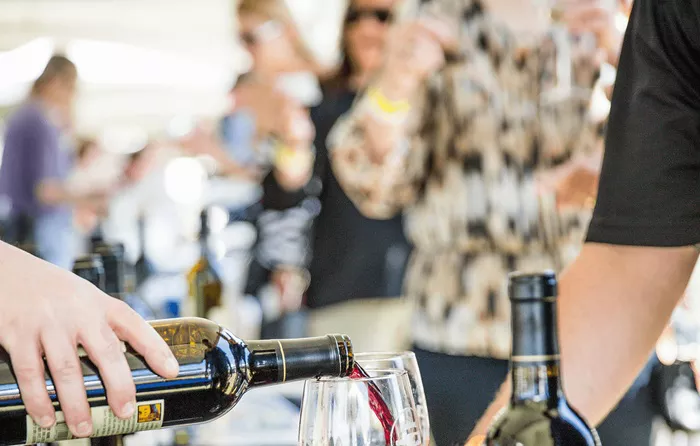Paso Robles, CA – Last year, Wine Enthusiast crowned the 2021 J. Lohr South Ridge Syrah as the top entry in its Top 100 Best Buys list, highlighting not just an individual wine but also the reputation of a brand and a region known for its burgeoning winemaking scene. Priced at just $15, this recognition has proven instrumental in boosting sales for both J. Lohr and the Paso Robles area, particularly notable given the higher labor costs faced by California wineries compared to their counterparts in Chile and Argentina.
J. Lohr Vineyards & Wines, founded by Jerry Lohr, is a significant player in California’s wine industry, recently earning a spot on the 2023 Wine & Spirits Top 100 list. Remarkably, J. Lohr produces more wine than all the other wineries on that list combined.
Foundational Role in Paso Robles
Jerry Lohr, born in 1937, established his winery in 1974, fundamentally shaping the Paso Robles region into a notable winemaking area. His pioneering efforts have paved the way for numerous winemakers, with many of the industry’s major players now operating in the region.
Under Jerry’s leadership, his three children—Cynthia, Lawrence, and Steve Lohr—have taken on managing roles, continuing the family legacy. Cynthia serves as Co-Owner and Chief Brand Officer, while Lawrence is Co-Owner, President, and COO, and Steve holds the title of Co-Owner and President/CEO.
Commitment to Research and Community
Jerry Lohr’s contributions extend beyond winemaking; he has been an advocate for research and development in viticulture, founding the American Vineyard Foundation and helping create the National Grape Research Alliance. He remains actively involved in local water conservation initiatives, proposing innovative solutions to blend treated city water with natural sources to support agricultural irrigation.
At 86, Lohr continues to oversee the financial aspects of the business as Chief Financial Officer, demonstrating a remarkable commitment to his work.
A Journey into Winemaking
In a recent interview with WineBusiness Monthly, Lohr shared his early fascination with wine, which was sparked by his Catholic upbringing. He recalls asking his father about growing grapes and pursuing winemaking, despite his father’s initial reservations about the climate.
Lohr’s journey into the wine industry began in earnest when he co-founded a building business with Bernie Turgeon in 1965. Following Turgeon’s retirement, the duo explored the potential of establishing a vineyard, drawing on Lohr’s agricultural background from his upbringing in South Dakota.
Strategic Growth and Vertical Integration
From the outset, Lohr envisioned a vertically integrated operation. They discovered a former brewery site in Paso Robles, transforming it into their winemaking facility. Initially, Lohr’s winery operated with minimal equipment, relying on traditional stainless-steel tanks and oak barrels that mirrored practices in France.
As demand grew, particularly from the Hyatt Hotels, J. Lohr adapted and expanded. The pivotal year of 1984 saw the winery commit to producing 84,000 cases, ultimately surpassing expectations by distributing 150,000 cases to the hotel chain.
Innovation Amidst Tradition
Lohr has observed significant changes in the wine industry over the past five decades. He emphasizes that while some recent trends lean towards convenience and mass production, the essence of winemaking—growing quality grapes and careful vinification—remains paramount. Their irrigation practices have also evolved, focusing on water conservation by employing strategies that mimic natural rainfall patterns, a practice that aligns with sustainable agriculture principles.
Investment in Education and Research
Lohr stresses the importance of investing in research to adapt to climate change and improve vineyard management. He points to significant advancements from institutions like UC Davis, highlighting the need for practical education to prepare future generations for challenges in the wine industry.
As J. Lohr Vineyards & Wines continues to thrive, Jerry Lohr’s vision and dedication underscore the enduring legacy of his family’s commitment to quality winemaking and community stewardship in Paso Robles.
You Might Be Interested In:


